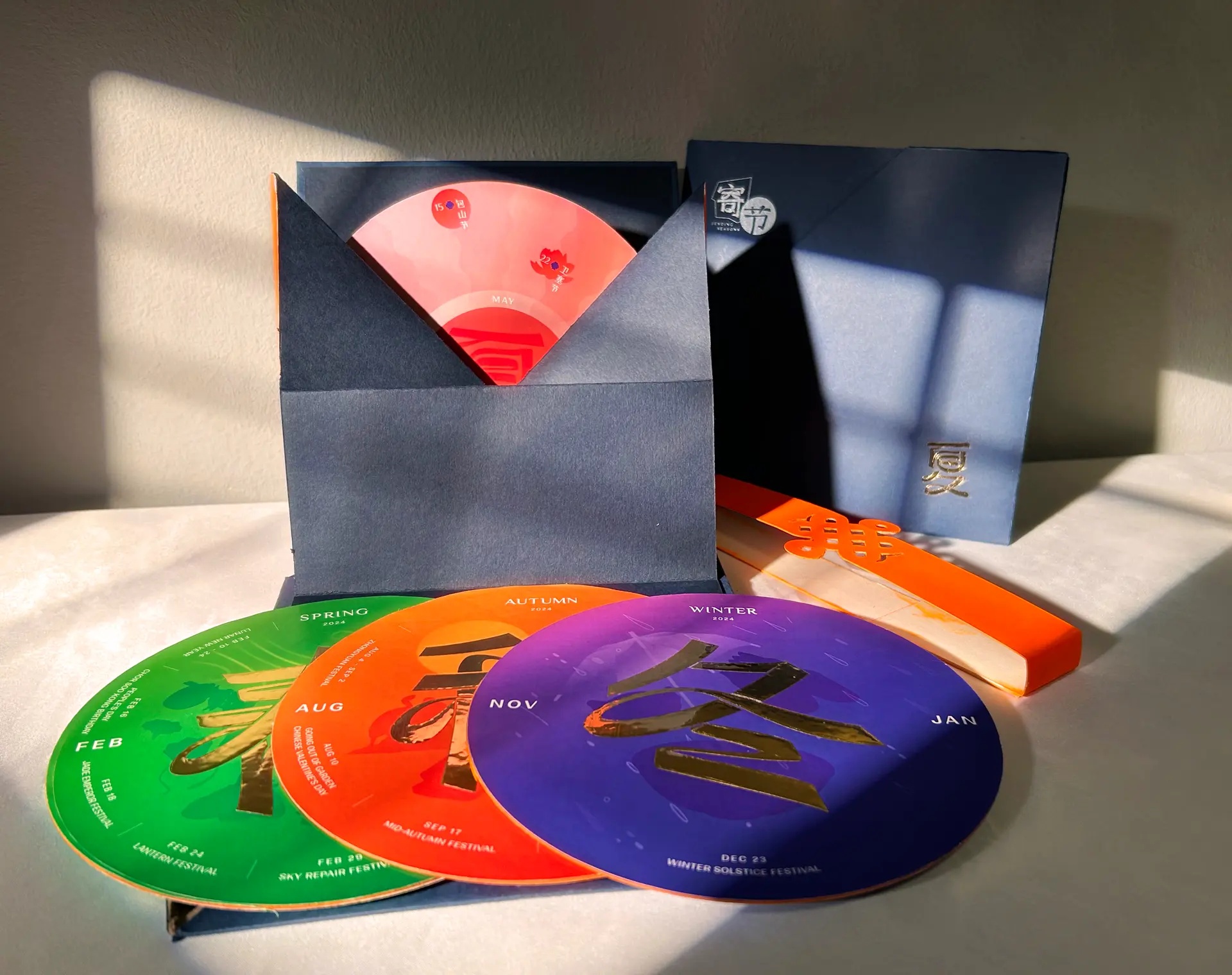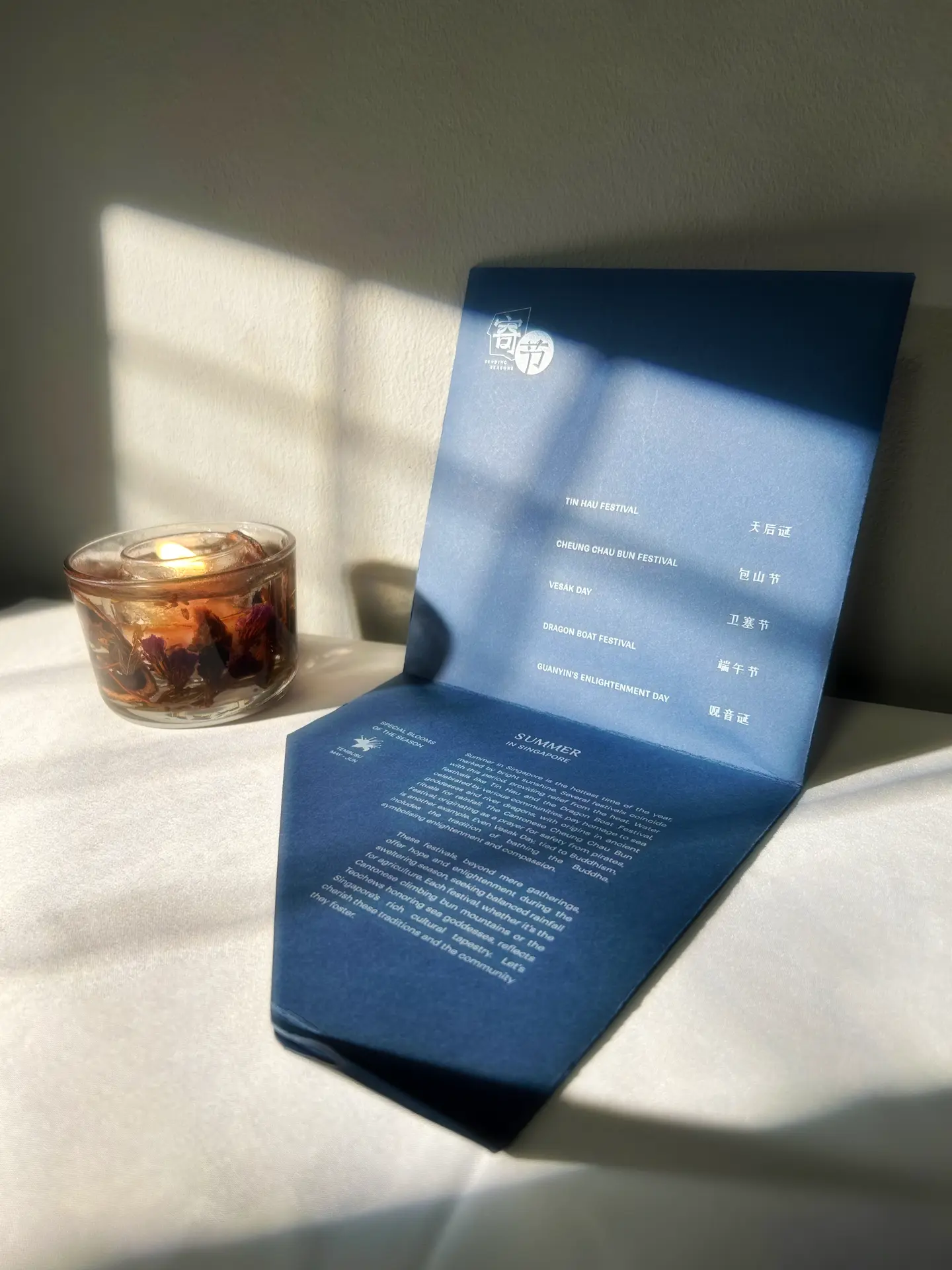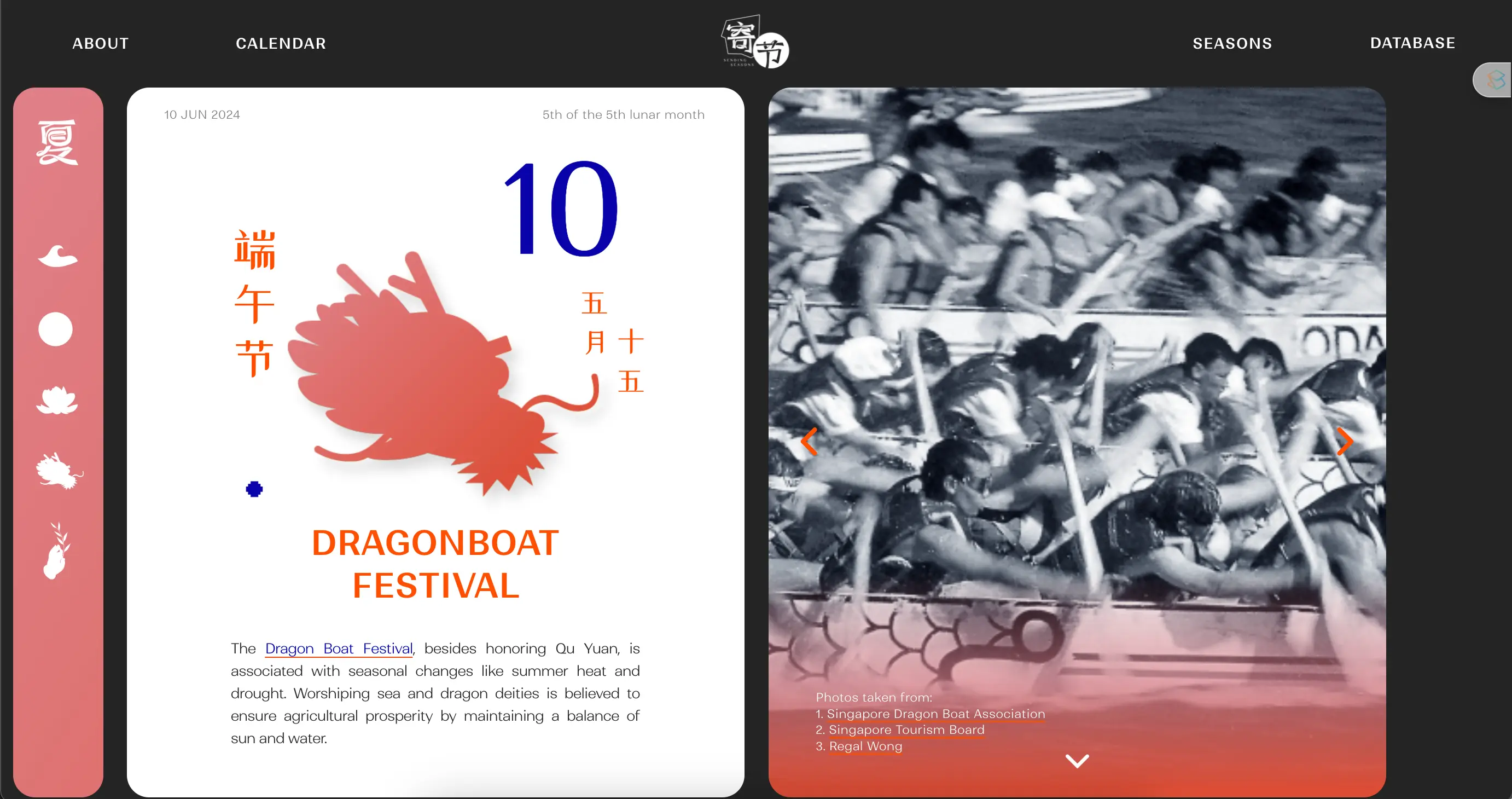寄节 (jì jié)
Joeann Tan

寄节 (jì jié) reintroduces the Chinese lunar calendar, focusing on the vibrant festivals celebrated within the Chinese diaspora dialect groups in Singapore. Celebrating festivals as pivotal moments in identity formation and community bonds, Joeann’s project explores cultural hybridity and deeper meanings through seasonal gatherings. Through the lens of the calendar, each festival is reimagined with a modern twist, incorporating seasonal elements and dialect nuances often overlooked in Singaporean culture. Integrated with Chinese values, the design promotes bonding through thoughtful gifting, fostering appreciation for cultural heritage among present and future generations.
What’s your family background like and do you celebrate these seasonal gatherings?
For my own personal dialect, I'm actually a Teochew so that's from my paternal grandfather's side. My grandmother is actually Fuzhou. On my maternal side, my grandfather is a Hokkien while my grandma is Cantonese. So it's really a mixture of everything. It's hard for me to say that I belong to one particular dialect celebrating that particular festival.
Growing up
as a very Chinese family, we celebrate a lot of festivals, almost 70-80% of the festivals that I've
researched and included in my project. It’s interesting to know that these festivals are almost like
religion. You belong there, you believe in them, and then you celebrate them not just through family
gatherings, but also through your faith.
It’s interesting to know that these festivals are almost like
religion. You belong there, you believe in them, and then you celebrate them not just through family
gatherings, but also through your faith.
would say that for me and my family, especially my mom's side, we are very bonded. When it comes to my grandparents' death anniversary for instance, we observe it and pray. My religion is Buddhist, Taoist. When praying together in my grandmother's house, then that's where we bond also.
How have these festivals contributed to your identity?
The festivals blend you well together with your dialect, knowing why the
festivals are here in the first place. I didn't manage to celebrate the Teochew coming of age
festival which is called going out of garden
. Roughly at the age of 12 or when you have your first
period, they call that 当成人 or becoming an adult. If my grandma is around, she would want me to
celebrate this festival and it makes me feel weird that I am not celebrating it. It's part of my
personal identity and I feel like those traces are gone. That's why I wanted to document all these festivals.
How are you achieving your aspirations through your artefacts?
My project previously was to have a safe space for people to know more about
their dialects but after doing calendars, I now know the essential part of what festivals are.
That's why I'm creating a new form of calendar which documents important festivals for people, especially for those who are far apart. The project explores different forms of gathering, such as
the metaspace and also documenting all the narratives so that people can then relate. Not saying
that it is another imagined community, but it is already a community that is present where people
can still understand their own dialects through the website.
especially for those who are far apart. The project explores different forms of gathering, such as
the metaspace and also documenting all the narratives so that people can then relate. Not saying
that it is another imagined community, but it is already a community that is present where people
can still understand their own dialects through the website.
Other than the metaspace, the website and the calendar, there will also be links whereby people can then communicate and contact whatever dialect association they are part of. They can add whatever knowledge that they know about their dialects and festivals.
See IT’S GIRL, and Nusantara Bergaul
See Kau Faham Bahasa Tak?, more than just chicken rice, and Paper Offerings Handbook 祭祀品礼俗手册
See Teh Tubruk: A Visual Feast for Teatime
See Paper Offerings Handbook 祭祀品礼俗手册
See Everyday India in Snapshots, Kau Faham Bahasa Tak?, and more than just chicken rice